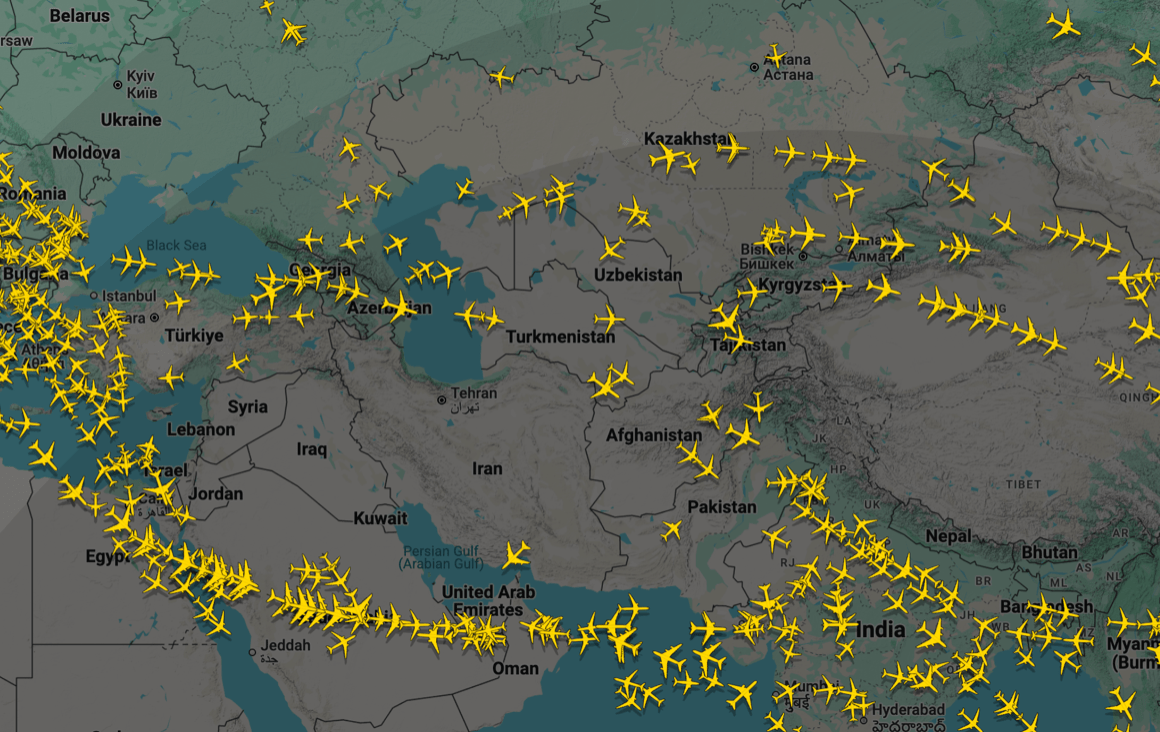It’s High Time to Reset The U.S.-Azerbaijan Relationship
Recent Articles
Author: Ambassador (Ret.) Richard E. Hoagland
06/24/2025
On the surface, all seems well enough with the U.S.-Azerbaijan bilateral relationship, but beneath the surface lies a complicated reality. The first week of June, a senior delegation from the Caspian Policy Center (CPC), visited Azerbaijan and met with high-level interlocutors in the government, civil society, and the diplomatic community to learn about the state of affairs in this pivotal country and opportunities for greater international engagement.
There are a number of positive signs that bilateral relations between Washington and Baku are progressing. ADA University (formerly Azerbaijan Diplomatic Academy that was merged with the Information Technologies University in January 2014) has new joint programs with George Washington University and American University, both in Washington, DC. Major U.S. hydrocarbon corporations have long been invested in Azerbaijan, and the first week of June ExxonMobil signed a new deal for “unconventional exploration,” including onshore fracking for oil. In the larger Caspian Sea Region, leaders and other senior officials of the five Central Asian nations (the C-5) invariably now invite Azerbaijan to their summits and other high-level meetings, to the extent that the C-5 has now become the C-6 for all practical purposes. The region is becoming more cohesive and is looking outward.
Looking back in history, near the end of the first decade of Azerbaijan’s independence, the United States played the leading role to ensure the construction of the Baku-Tbilisi-Ceyhan (BTC) Pipeline to ensure that Azerbaijan’s Caspian Sea oil and gas would reach Europe directly, bypassing Russia’s pipeline system. Perhaps more than anything else, that set independent Azerbaijan on the road to the wealth and self-confidence it now enjoys. That was the high point of the Baku-Washington relationship.
But that bilateral relationship now needs work. One senior Azerbaijani official opined that the United States has never had a significant and comprehensive relationship with Azerbaijan nor with the South Caucasus region in general. He commented that what Azerbaijan and the United States need now is a BTC-2, i.e., real engagement to move Caspian-region resources westward, not just hydrocarbons but also critical minerals from Central Asia, especially from Kazakhstan. He noted that the Organization of Turkic States could help with this as well as, perhaps, the European Union (EU). But, he added, the EU so far does not seem to have a strategic approach for the region. Real change could happen if the United States would take the lead.
A member of the diplomatic community in Baku told the CPC delegation that the Azerbaijan-U.S. relationship is now, and always has been, in a “state of potential.” He added that Baku, in his view, is more responsible for this than Washington. Offers are made by the United States, he said, but Azerbijan doesn’t accept them. He suggested this bilateral problem comes from U.S. policy makers generally thinking and working “from the bottom up,” whereas Azerbaijani policy makers tend to think and to work “from the top down,” preferring engagement at the highest levels to such an extent that few opportunities are usually left for the daily working-level diplomacy that is standard practice elsewhere.
And therein lies a problem that has long existed for American diplomacy in the now-independent countries of the former Soviet Union. Even now, a full generation after the fall of the Soviet Union, the two systems are still radically different. Their system of government and social culture was shaped by nearly a century of the totalitarian Soviet Union, before that they lived under the imperial Tsarist tradition, and even earlier for centuries under the Byzantine and Mongol Empires. The West’s system of government, however, emerged from the Renaissance, the Reformation, and the Great Awakening, all of which place the individual first and foremost, a worldview that is foreign in that part of the world that includes Azerbaijan.
Washington has learned to operate successfully in other parts of the world that do not have the Western tradition, and it is certainly now high time that it does so in the countries of the former Soviet Union, including, of course, Azerbaijan.
The time is especially ripe to improve the U.S.-Azerbaijan relationship because Russia’s brutal war against Ukraine has caused nearly all the former Soviet states in the Caspian region to look quietly how to make themselves stronger, more independent, and to open the door for new relationships. Azerbaijan is certainly no exception.
Also, the growth of the Middle Corridor as a way to bypass Russia because of international sanctions is another key reason for Washington to rethink its approach to the Caspian region. The Middle Corridor is a multi-modal transit network that extends from China, through Central Asia, across the Caspian Sea to Azerbaijan, onward to Türkiye, and then into the rest of Europe. Although it is not yet fully built out, it will play a significant role long into the future. And it is most certainly high time for American foreign policy to take that into account, especially since Israel’s bombardment of Iran has closed shipping passages to the south and further reinforced the need for the Middle Corridor.
 International flights bypassing the Levant, Persian Gulf, and Iran following the outbreak of fighting between Israel, the United States, and Iran. Source: Flightradar24
International flights bypassing the Levant, Persian Gulf, and Iran following the outbreak of fighting between Israel, the United States, and Iran. Source: Flightradar24
Some might argue that U.S. foreign policy is in flux under the current presidential administration in Washington. And that is true. But what better time would there be to seriously and positively strengthen the Azerbaijan-United States bilateral relationship?